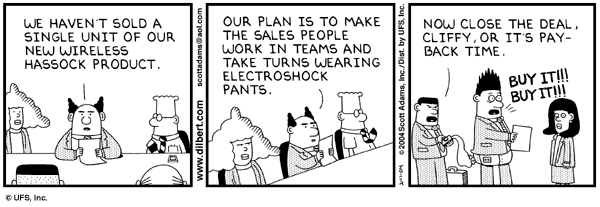What’s your intent when it comes to sales? Is it about you winning the deal, or are you tuned into them and what’s in their best interest?

If it’s all about you, there’s a tendency to crank up the pressure for a quick decision. But think about it – how do you react when the roles are flipped?
Feeling pressure, you’re likely to push back, possibly walk away from the deal. And even if you succumb, it’s likely to leave a bad taste and generate buyer’s remorse.
Instead of trying to push someone into a decision, consider changing your game plan. Put yourself in their shoes and see it from their perspective. What can you do to give them enough reasons to say, “Yes, this is a good deal for me”?
As consumers, we tend to make emotional decisions – we want to feel good, backed up by logical arguments like “It’s the right price” or “Look at the warranty.”
In business, it tends to be the other way around. We look for logical, economic justifications, making a business case, and then we make an emotional decision based on how it’ll impact our status in the organization.
In my experience selling B2B, I’ve noticed that the emotional decision often trumps the logical one. What’s good for the organization might not align with what’s good for the decision maker or influencer. If this works, will it improve my status in the organization, or could it be detrimental (this could mean more work, take my job etc.)
Whether you’re dealing with consumers or businesses, the best approach is to have your prospects convince themselves it’s in their best interest to move forward.
Let them paint the picture: how will solving this problem change their life? What’s the downside of sticking with the way things are? Help them build their own “yes” case, full of logical and emotional reasons why this is a win-win.
Put another way, ditch the pressure tactics and be empathetic. Help them understand their own motivation for moving forward.
One of my favourite mantras in sales is “You have two ears and one mouth. Use them in that proportion.”
The better you listen to your prospect’s needs and have them articulate enough reasons to say “yes,” the “sale” just becomes a matter of doing the paperwork.
